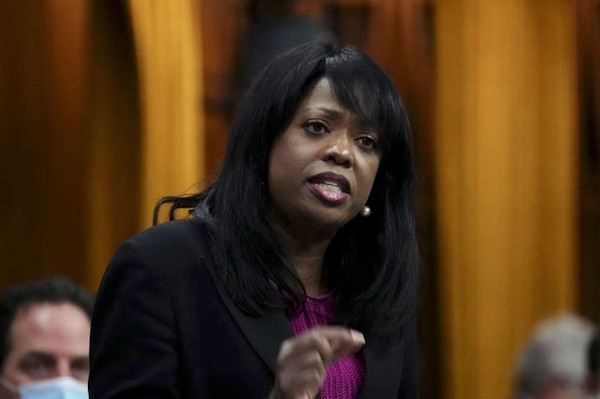By Maureen McCall
Indigenous leaders call for policy reforms and Indigenous equity ownership to unlock Canada’s energy potential
A surprising twist in Canada’s pipeline debate emerged on Jan. 21, 2025, when Alberta Premier Danielle Smith called for a revival of the Northern Gateway pipeline.
Unexpectedly, Grand Chief Stewart Phillip, president of the Union of B.C. Indian Chiefs, voiced support, warning that if Canada doesn’t act, Donald Trump will. Yet just a day later, Phillip abruptly retracted his statement, raising fresh questions about external influence and the future of Indigenous participation in energy development.
Northern Gateway, a pipeline once proposed to carry Alberta oilsands crude to the B.C. coast for export to Asia, was cancelled in 2016 after years of environmental opposition and legal challenges. Its demise became a symbol of Canada’s broader struggles to balance resource development, environmental concerns and Indigenous rights. Now, amid rising global energy demand and growing Indigenous interest in ownership stakes, calls to revive the project are resurfacing, with political, legal and economic implications.
Adding to the intrigue, Phillip has long been a vocal critic of major resource projects, including Northern Gateway, making his initial endorsement all the more surprising.
Some observers, like Calvin Helin, a member of the Tsimshian Nation and principal at INDsight Advisers, see deeper forces at work. A lawyer specializing in commercial and Indigenous law and a best-selling author, Helin believes the incident highlights how environmental activists are shaping the conversation.
“Environmental groups have infiltrated some Indigenous organizations,” Helin said in an interview. “They managed to support a government that championed their agendas, particularly Alberta-focused objectives like the coastal pipeline ban and changes to the regulatory approval system. In this era of Trump, all they’ve managed to do is weaken Canada’s position.”
Nonetheless, Helin emphasized that the energy industry has learned the importance of genuine engagement with Indigenous interests. He pointed out that Indigenous leaders increasingly support responsible natural resource development. Inclusion and recognition from the outset, Helin argued, are essential for energy projects in 2025 and beyond.
After the cancellation of Northern Gateway, Indigenous leader Dale Swampy, who helped establish the Northern Gateway Aboriginal Equity Partners, formed the National Coalition of Chiefs, a pro-development alliance of First Nation chiefs advocating for oil and gas development in their communities.
Swampy continues to champion the idea of a pipeline dedicated solely to moving bitumen to the coast, arguing that Canada has been “putting all its eggs in one basket” by selling almost exclusively to the United States while competitors, including the U.S. itself, have entered global markets.
According to the Canadian Energy Centre, global demand for oil and gas in emerging and developing economies is expected to remain robust through 2050. With the added pressures of U.S. tariffs, conversations about Canadian pipelines to tidewater have gained urgency. Swampy advocates for a policy reset and the revival of Northern Gateway, this time powered by Indigenous equity investment.
“First, we’ve got to get rid of the oil tanker ban (Bill C-48),” Swampy said. “We need more fluid regulatory processes so we can build projects on a reasonable timeline, without costing us billions more waiting for approvals—like TMX (Trans Mountain Expansion Project). And you’ve got to get the proponents back to the table. Last time, 31 of the 40 communities were already signed on. I believe we can get them on board again.”
Swampy continues to work with industry partners to develop an Indigenous-led bitumen pipeline to the West Coast. “We can get this project built if it’s led by First Nations.”
He also noted that other Indigenous leaders are increasingly recognizing the benefits of collaborating on resource development, whether in mining or B.C. LNG projects, which he says enjoy widespread First Nations support.
Discussions with Helin, Swampy and other Indigenous leaders resulted in the following policy recommendations for 2025 and beyond.
- Repeal Bill C-69, the Impact Assessment Act. It blocks not only pipelines but also mines, refineries, export plants and other energy infrastructure in which First Nations want to invest. The Supreme Court of Canada ruled it unconstitutional on Oct. 13, 2023.
- Cut taxes to offset U.S. tariffs. Reducing taxes on investment and energy projects can neutralize tariff impacts and attract new investment. Eliminate the carbon tax, which Indigenous leaders argue has placed Canada at a strategic disadvantage globally.
- Repeal Bill C-59, the so-called greenwashing bill. According to Stephen Buffalo, president and chief executive officer of the Indian Resource Council of Canada, this legislation has silenced many voices within the Indigenous energy community.
- Approve LNG plants and related infrastructure. Canada currently sells gas exports almost exclusively to the United States, but there’s a strong business case for expanding to Asian and European markets. In a recent Canadian Energy Ventures webcast, it was revealed that LNG sold to Europe fetches up to 16 times the price Canada receives from U.S. sales. First Nations are already successfully involved in Woodfibre LNG, Cedar LNG and Ksi Lisims LNG in B.C.
- Cut regulatory delays. Prolonged approval timelines erode investor confidence. Streamlining processes can help projects proceed in reasonable timeframes.
Finally, clarify reconciliation guidelines. Clearly define what constitutes meaningful consultation. Industry must treat Indigenous peoples as true partners, advancing economic reconciliation through equity partnerships.
A social media stir over Northern Gateway has reignited debate over Indigenous ownership in Canada’s energy future. While some leaders waver, others like Helin and Swampy make a compelling case: Indigenous-led projects are crucial for Canada’s economic and energy security. Their message is clear — repeal restrictive policies, accelerate project approvals and embrace Indigenous equity. If Ottawa removes the roadblocks, Canada can unlock its full energy potential.
Maureen McCall is an energy business analyst and Fellow at the Frontier Center for Public Policy. She writes on energy issues for EnergyNow and the BOE Report. She has 20 years of experience as a business analyst for national and international energy companies in Canada.



















